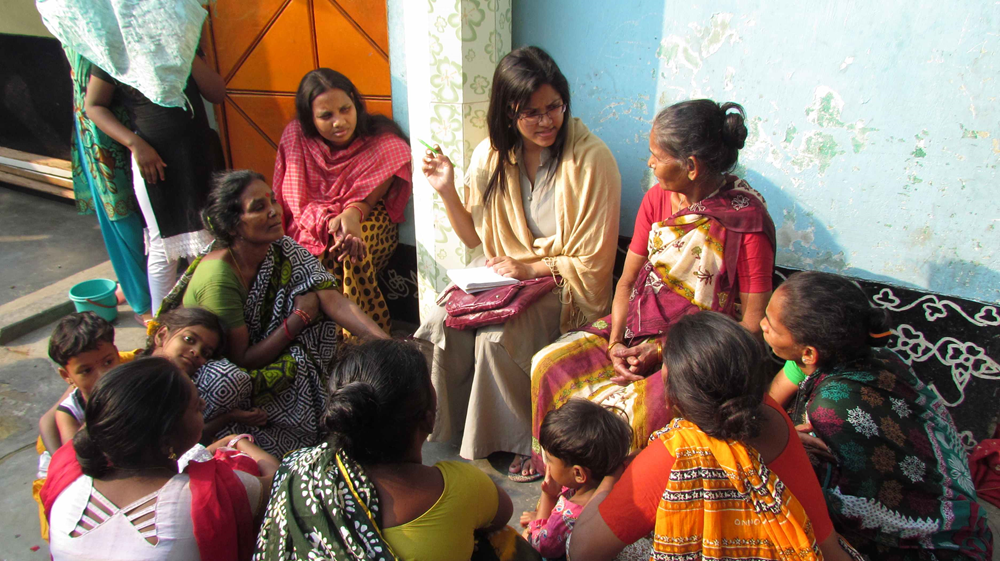Exploring how climate change disproportionately affects women in the global south
Posted on Tuesday 16 July 2024

How climate change affects women in the urbanised and disadvantaged areas of the global south is being investigated by a University of York researcher. The pioneering new research is thanks to the AXA IM Research Award, an AXA Investment Managers (AXA IM) and the AXA Research Fund partnership.
Dr Anika Haque won the prestigious award earlier this year and is now using the €100,000 award to research the exacerbated vulnerability of women in the global south. She will examine the inclusion of women in the climate change adaptation policies and strategies.
Climate inequality
This award marks a significant moment for Dr Haque in recognition of her 15-years of work on urban climate change resilience. It will allow Dr Haque to focus and bring light to an area of climate transition research traditionally neglected by local policy and governments, namely gender inequality and vulnerability, and the urban inequality that climate change creates.
It is a powerful example of the Department of Environment and Geography and the University of York’s Corporate and Foundation Philanthropy team working together to deliver social good on a grand, global scale.
Transformative research
Dr Haque is the first global south scholar to receive this award. She explained: “This award is given to only one academic per year globally, so it is a huge honour for me and for the University of York to receive it. Thanks to AXA for their support to deliver this transformative research that will explore solutions to address the social impacts of climate change, and the transition towards not only a fair and inclusive future but also a resilient future.
“The most important aspect of this research is the fact that it is going to be focused on the most vulnerable people in the most vulnerable parts of the world. Climate change is causing the most severe consequences in the global south and women are disproportionately affected by this, so this research is both timely and urgent and will be solutions-focused - sharing ways in which we can work together to improve people’s lives.”
Systematic understanding
The AXA IM Research Award recognised Dr Haque as a researcher ‘whose work focuses on the social dimensions of climate change and the conditions for a fairer and more inclusive transition’. Marie Bogataj, Global Head of Communications & Corporate Responsibility at AXA IM, said:
“The third edition of the AXA IM Research Award is part of AXA Group’s support for top tier research on key societal topics. We are proud to support Dr Haque‘s research on developing systematic understanding of the complex climate-adaptation processes of women in low-income-urban-settlements. The aim is to ensure their effective inclusion inadaptation policies and strategies within a ‘just’ transition process. Dr Haque’s research will play a major role in informing policies and actions towards a holistic approach to climate-change-adaptation and sustainable development.”
Fostering relationships
Recognition of Dr Haque’s research in this area has also been welcomed by the Department of Environment and Geography and the Interdisciplinary Global Development Centre (IGDC) where Dr Haque is a member. The University of York is committed to fostering relationships with corporate partners who place sustainability and social purpose at the heart of their strategies. Dr Matthias Ruth, Pro-Vice-Chancellor for Research at University of York explained: “The AXA IM Research Award is a testament to this commitment and the strength of research at York.
Collaborations like this bridge the gap between academia and industry and pave the way for impactful changes in society. Dr Haque is a worthy winner of this award, and we look forward to seeing the impact her research continues to make.’’
“In our role as a university for public good, we must and do play our part in tackling some of the most pressing global, environmental, social and economic challenges. Positive collaborations with industry and transformational philanthropic partnerships make a real difference in this regard.”
